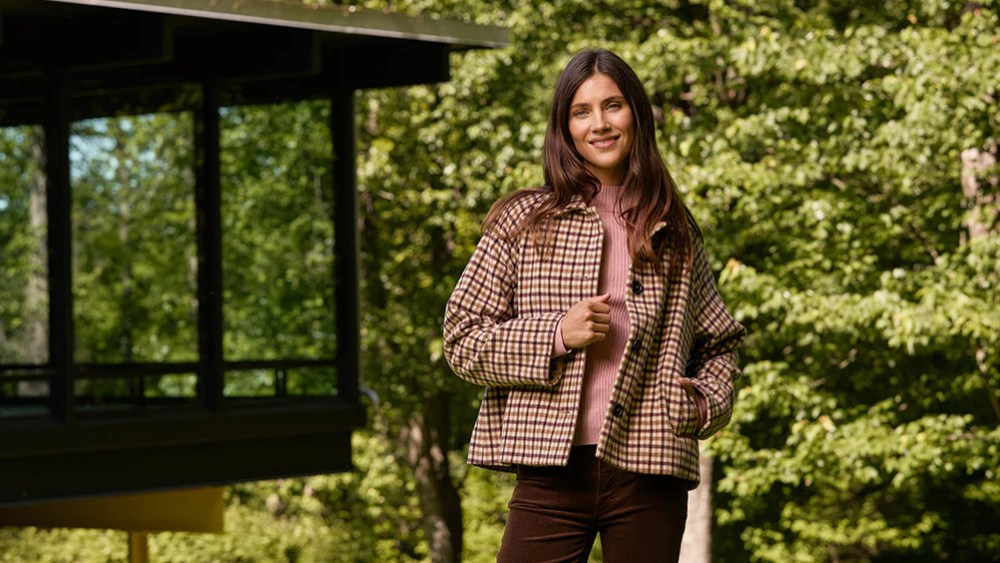Mykita founder Moritz Krueger used the word “kitchen” frequently while discussing the Berlin-based eyewear firm’s sprawling new headquarters, which opened in January.
That’s because the new Mykita Haus is home to its interdisciplinary approach to manufacturing, in which elements from auto-parts prototyping or camera-lens technology might find their way into the brand’s handmade frames, prized for their clean lines, timeless designs and comfortable, lightweight character.
“To us, it’s our kitchen base, a place to refine our ingredients, cultivate our manufacturing intelligence, and gather for play and creative exchange,” said Krueger, who is also creative director of Mykita, founded in 2003. “What we call modern manufacturing means combining precise craftsmanship or existing crafts with new technologies that we find in different places and other industries.”
The building also reflects his dedication to “complete vertical integration, from ideation to product development to our owned and operated production, all under one roof,” he said, dialing in for the interview from the Opti eyewear fair in Munich, where Mykita unveiled a matte, raw and unpolished take on acetate, among other novelties. “The new headquarters represent the next logical and organic step in the development of Mykita.”
You May Also Like

Housed in a historic brick building on the Spree River that was once home to dye works, the new Mykita Haus offers 41,000 square feet of gleaming, bright space, some reminiscent of a laboratory on a space vessel — in photos anyways. It’s home to about 240 employees, almost half of them skilled artisans.
Basing an eyewear company in Germany is already unconventional, and Krueger went further with his R&D-intensive approach.
“We’re not taking conventional eyewear manufacturing as the basis; We’re starting more from an industrial design perspective, from material development to finding the right technologies to create our products from that material,” Krueger explained. “I think we are the only eyewear company in the world that is running a self-contained, -owned and -operated manufacturing of our own products and producing them by ourselves in one building in Berlin.”

Mykita currently produces about 250,000 frames annually, and the building contains enough space — some of it is currently leased — to allow it to almost double the current output, Krueger noted.
The brand already sells eyewear in 80 countries, with the U.S. its single-biggest market, followed by Germany, France, China, South Korea and Italy. By region, the Americas represent 25 percent, Asia-Pacific 20 percent, 15 percent Eastern Europe, Middle East, India and Africa, and 40 percent Europe.
Mykita also operates 14 monobrand flagships in many markets, with four stores in the U.S., four in Germany and locations in Bangkok, Tokyo and Osaka, Japan. Krueger said searches are under way to implant Mykita stores in London and Paris.
Asked if Berlin represents an inspiring place for eyewear design, Krueger argued that it does not offer many famous role models, given the nascent state of its fashion and design industries.
“So it’s a place where you have to carve out your own alternative, unconventional path,” he said. “And I think this kind of do-it-yourself, carve-out-your-own-path approach is something that is extremely strong in our DNA, from product design to all our business principles.
“Owning our own manufacturing and cultivating that further over the last 20 years was always the greatest inspiration and the greatest force of all developments.”

For example, the material Mykita dubbed Mylon was born from a method for rapid prototyping of automotive parts that Krueger discovered at an industrial exhibition in 2008, which the eyewear firm refined over the next three years, trailblazing its use in the sector. It allows high-volume frames with low weight.
In a similar vein, Mykita has been collaborating for several years with Leica, levering its expertise on optical-grade sun lenses to use as an ingredient in frames it designs and manufactures.
Optical frames represents about 70 percent of Mykita’s business, and the rest is sunglasses.
In Krueger’s view, consumers are seeking out precise, timeless designs and comfortable, lightweight frames that have a long lifespan.
Increasingly, they’re also interested in sustainability, and Mykita, with tight control on its entire supply chain and use of renewable acetate and recycled metals, earned it the Responsible Company Prize at the Silmo trade fair in 2023.
Mykita invites opticians to visit its premises to learned the brand story, which becomes “one of their key emotional elements to sell the brand” and tell its unique story.




